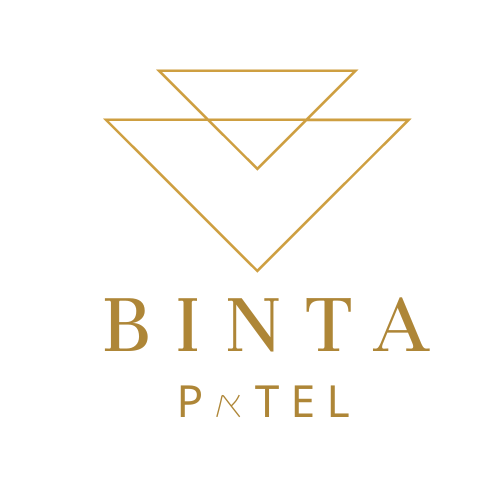The Dark Triad
In the world of conscious relating, we often talk about love, intimacy, trust, and connection. Yet there’s another side to human behaviour that we can’t ignore if we’re truly committed to awareness and healing: the darker aspects of personality that show up in relationships. Psychologists call one version of this the Dark Triad, a cluster of traits made up of narcissism, Machiavellianism, and psychopathy.
These words may sound clinical or even frightening, but they are useful signposts for recognising patterns of relating that can create harm, disconnection, or cycles of pain. And more importantly, understanding them can be an invitation to deeper self-reflection and healing.
What is the Dark Triad?
Narcissism
At its core, narcissism is about excessive self-focus and a deep need for validation. In relationships, this can show up as an inability to truly empathise, a hunger for admiration, or using others to bolster one’s self-image. While we may associate narcissism with grandiosity, it often masks fragile self-esteem and unhealed wounds.Machiavellianism
This trait is defined by manipulation, strategy, and control. A Machiavellian person may withhold affection, use guilt or charm to get their way, or subtly undermine others to maintain power. At its root is usually fear. Fear of vulnerability, loss, or not having enough.Psychopathy
Psychopathy includes traits such as lack of remorse, impulsivity, or disregard for others’ emotions. In relationships, this can manifest as recklessness, dishonesty, or emotional coldness. While severe psychopathy is rare, milder expressions can appear in everyday relational dynamics, especially when someone is disconnected from their empathy or life force.
The Dark Triad and Women Who Have Experienced Sexual Trauma
For women who have lived through sexual trauma, the Dark Triad can have a profound and painful resonance. Many survivors find themselves unconsciously drawn to partners who embody these traits. Narcissistic charm, manipulative control, or emotional coldness, because the nervous system recognises the familiarity of danger. It is not a conscious choice, but a survival imprint.
This can create cycles of retraumatisation, where intimacy feels unsafe, trust feels impossible, and the body remains on high alert. For some women, the presence of a Dark Triad partner mirrors the power dynamics of their trauma. That of dominance, lack of empathy, or disregard for consent.
Healing here is not just about recognising red flags in others, but also about restoring one’s own sense of safety, power, and connection to life force energy.
Why This Matters in Conscious Relating
Conscious relating asks us to meet ourselves and others with honesty, compassion, and presence. But if we don’t recognise these darker patterns, in ourselves or in the people we’re drawn to, we risk staying trapped in cycles of pain.
The truth is, most of us carry shadows of these traits. For example:
Have you ever withheld affection to “teach someone a lesson”?
Have you ever ignored your partner’s needs because you felt too caught in your own story?
Have you ever used charm or guilt to get what you wanted instead of asking directly?
These are all very human behaviours. The work is not to shame ourselves, but to bring these patterns into the light so they no longer unconsciously run our relationships.
How to Heal and Transform
Healing from the influence of the Dark Triad, whether in yourself or from past relationships, is possible. It begins with awareness and the willingness to look at what lies beneath the surface.
Self-reflection and honesty
Journaling or meditation can help you notice where you might slip into self-focus, control, or disconnection. Ask: When do I feel tempted to manipulate, withdraw, or dominate? What fear or unmet need is beneath this?Healing the nervous system
Many of these patterns are survival strategies, born from stress, trauma, or unmet childhood needs. Somatic practices such as breathwork, de-armouring, or TRE can help release the stored tension that keeps these patterns in place.Restoring safety after trauma
For survivors of sexual trauma, safety must come first. Practices that gently re-establish boundaries, sovereignty, and bodily autonomy are crucial. This might mean working slowly with trusted practitioners, exploring tantra as a practice of consent, or simply learning to notice when the body says “yes” or “no.”Re-learning empathy and vulnerability
Vulnerability is the antidote to control. When we allow ourselves to express fear, sadness, or longing, we dissolve the need to hide behind strategies. Conscious communication and embodied intimacy practices can help survivors slowly rebuild trust.Boundaries and discernment
If you’ve been hurt by someone showing strong Dark Triad traits, healing also means strengthening your boundaries. It’s okay to walk away from dynamics that drain your energy or erode your sense of self.
A Reflection for You
Take a moment to reflect:
Where in your life have you experienced the impact of narcissism, manipulation, or emotional coldness?
How has sexual trauma, yours or that of someone close to you, shaped your sense of love, safety, and trust?
What would it feel like to choose relationships rooted in mutual respect, vulnerability, and presence instead?
Closing
The Dark Triad reminds us that love is not only about light. It is also about courage, the courage to meet the shadows within and around us. For survivors of sexual trauma, this journey is especially profound: healing is not just about moving away from pain, but reclaiming sovereignty, vitality, and the right to feel safe in intimacy again.
In conscious relating, healing is not about perfection. It’s about awareness, compassion, and a willingness to return again and again to the essence of who we are: beings wired for connection, intimacy, and love.
I hold deep respect for the complexity and tenderness of topics like sexual trauma. I have written this piece with as much care and sensitivity as possible. If I have unintentionally offended, overlooked something important, or expressed something in a way that doesn’t feel accurate, please know it was never my intention. I welcome your reflections or corrections, as they support me in holding this conversation with the respect and integrity it deserves.
